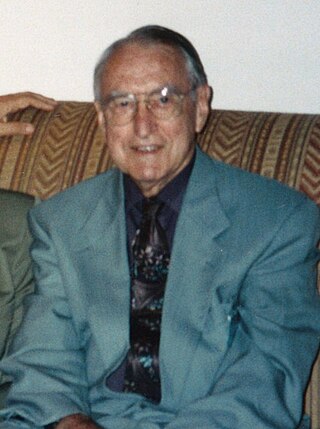Gender-affirming surgery is a surgical procedure, or series of procedures, that alters a person's physical appearance and sexual characteristics to resemble those associated with their identified gender. The phrase is most often associated with transgender health care and intersex medical interventions, although many such treatments are also pursued by cisgender and non-intersex individuals. It is also known as sex reassignment surgery, gender confirmation surgery, and several other names.

Harry Benjamin was a German-American endocrinologist and sexologist, widely known for his clinical work with transgender people.
The World Professional Association for Transgender Health (WPATH), formerly the Harry Benjamin International Gender Dysphoria Association (HBIGDA), is a professional organization devoted to the understanding and treatment of gender identity and gender dysphoria, and creating standardized treatment for transgender and gender variant people. WPATH was founded in 1979 and named HBIGDA in honor of Harry Benjamin during a period where there was no clinical consensus on how and when to provide gender-affirming care. WPATH is mostly known for the Standards of Care for the Health of Transgender and Gender Diverse People (SOC).
The Standards of Care for the Health of Transgender and Gender Diverse People (SOC) is an international clinical protocol by the World Professional Association for Transgender Health (WPATH) outlining the recommended assessment and treatment for transgender and gender-diverse individuals across the lifespan including social, hormonal, or surgical transition. It often influences clinicians' decisions regarding patients' treatment. While other standards, protocols, and guidelines exist – especially outside the United States – the WPATH SOC is the most widespread protocol used by professionals working with transgender or gender-variant people.

John William Money was a New Zealand American psychologist, sexologist and professor at Johns Hopkins University known for his research on human sexual behavior and gender. Believing that gender identity was malleable within the first two years of life, Money advocated for the surgical "normalization" of the genitalia of intersex infants.
Russell Reid is a retired consultant psychiatrist who specialized in sexual and gender-related conditions. He is particularly known for his work with gender identity disorder patients. Richard Curtis took over his practice after his retirement. Reid grew up in New Zealand and worked privately in the United Kingdom. Britain's best-known expert on gender reassignment, he was a member of the parliamentary forum on transsexualism.

Richard Green was an American-British sexologist, psychiatrist, lawyer, and author known for his research on homosexuality and transsexualism, specifically gender identity disorder in children. He is known for his behaviorism experiment in which he attempted to prevent male homosexuality and transsexuality by extinguishing feminine behavior in young boys. He later came to favor biological explanations for male homosexuality.
Sister Mary Elizabeth Clark is the main mover of the AIDS Education and Global Information System database, previously a pre-World Wide Web bulletin board system.

Androphilia and gynephilia are terms used in behavioral science to describe sexual orientation, as an alternative to a gender binary homosexual and heterosexual conceptualization. Androphilia describes sexual attraction to men and/or masculinity; gynephilia describes the sexual attraction to women and/or femininity. Ambiphilia describes the combination of both androphilia and gynephilia in a given individual, or bisexuality.

Sexuality in transgender individuals encompasses all the issues of sexuality of other groups, including establishing a sexual identity, learning to deal with one's sexual needs, and finding a partner, but may be complicated by issues of gender dysphoria, side effects of surgery, physiological and emotional effects of hormone replacement therapy, psychological aspects of expressing sexuality after medical transition, or social aspects of expressing their gender.
The Sex Orientation Scale (SOS) was Harry Benjamin's attempt to classify and understand various forms and subtypes of transvestism and transsexualism in biological males, published in 1966. It was a seven-point scale ; it was analogous to the Kinsey Scale as it relates to sexual orientation, which also had seven categories.
Feminizing hormone therapy, also known as transfeminine hormone therapy, is hormone therapy and sex reassignment therapy to change the secondary sex characteristics of transgender people from masculine or androgynous to feminine. It is a common type of transgender hormone therapy and is used to treat transgender women and non-binary transfeminine individuals. Some, in particular intersex people, but also some non-transgender people, take this form of therapy according to their personal needs and preferences.
Ira Basil Pauly is an American psychiatrist who was an All American college football player at UCLA, and is known for his influential work on transsexualism.

A transgender person is someone whose gender identity differs from that typically associated with the sex they were assigned at birth. Some transgender people who desire medical assistance to transition from one sex to another identify as transsexual. Transgender is also an umbrella term; in addition to including people whose gender identity differs from the gender typically associated with their assigned sex at birth, it may also include people who are non-binary or genderqueer. Other definitions of transgender also include people who belong to a third gender, or else conceptualize transgender people as a third gender. The term may also include cross-dressers or drag kings and drag queens in some contexts. The term transgender does not have a universally accepted definition, including among researchers.

A transsexual person is someone who experiences a gender identity that is inconsistent with their assigned sex, and desires to permanently transition to the sex or gender with which they identify, usually seeking medical assistance to help them align their body with their identified sex or gender.

David Reimer was a Canadian man raised as a girl following medical advice and intervention after his penis was severely injured during a botched circumcision in infancy.
The Association for the Advancement of Psychotherapy (AAP) is a professional organization created to advance methods of psychotherapy among members of the medical profession and to familiarize members with progress in the field. Organized in 1939, Association for the Advancement of Psychotherapy publishes the quarterly American Journal of Psychotherapy.

Dallas Denny is a writer, editor, behavior analyst, and transgender rights activist.
Christian Hamburger was a Danish endocrinologist. He worked in Copenhagen and was the doctor responsible for Christine Jorgensen's sex reassignment, and she would choose her name in honor of him.

The Transsexual Phenomenon is a medical textbook published by American endocrinologist and sexologist Harry Benjamin in 1966 with The Julian Press. The text is notable for its examination of transsexualism not as a psychological issue, but rather as a somatic disorder that should be treated through medicine. Benjamin argues that transvestism and transsexuality are a spectrum of conditions, requiring different treatments that ranged from hormone replacement therapy to surgical intervention.









